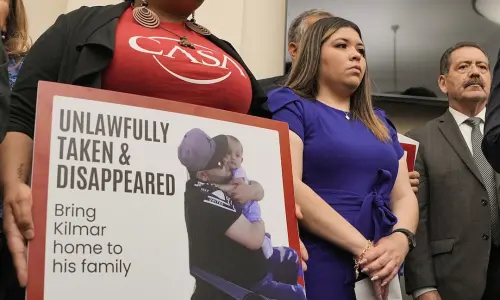Introduction
U.S. President Donald Trump emphasized that the decision to bring back Kilmar Abrego Garcia, a man mistakenly deported from Maryland to El Salvador, was made by the Department of Justice.Context
Kilmar Abrego Garcia faced charges of transporting illegal immigrants within the U.S., as stated by Attorney General Pam Bondi. His case has become a focal point for critics of Trump's immigration policies, who argue that the administration's aggressive deportation tactics undermine civil liberties.Developments
During an NBC News interview, Trump clarified, "Well, that wasn't my decision. The Department of Justice decided to do it that way, and that's fine." He also noted that he had not communicated with El Salvador President Nayib Bukele regarding the situation.Abrego Garcia, a 29-year-old Salvadoran whose wife and child in Maryland are U.S. citizens, appeared in federal court in Nashville on Friday evening. His arraignment has been scheduled for June 13, where he is expected to enter a plea, and he will remain in federal custody until then.
If convicted, Abrego Garcia faces deportation back to El Salvador after serving his sentence. The Trump administration claims he is associated with the MS-13 gang, a claim his lawyers vehemently deny. He had previously been deported on March 15, more than two months prior to the filing of charges against him. Following his deportation, he was briefly held in a facility in El Salvador, despite a 2019 U.S. immigration judge's order preventing his deportation due to the risk of gang persecution.
Trump expressed confidence in the case against Abrego Garcia, labeling him as having a "horrible record of abuse" of women. However, Abrego Garcia's attorney, Simon Sandoval-Moshenberg, has dismissed the criminal charges as "fantastical."
